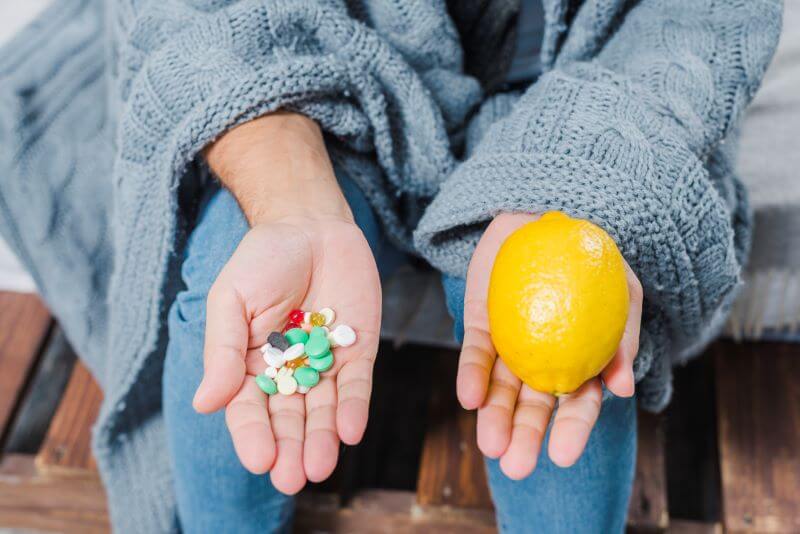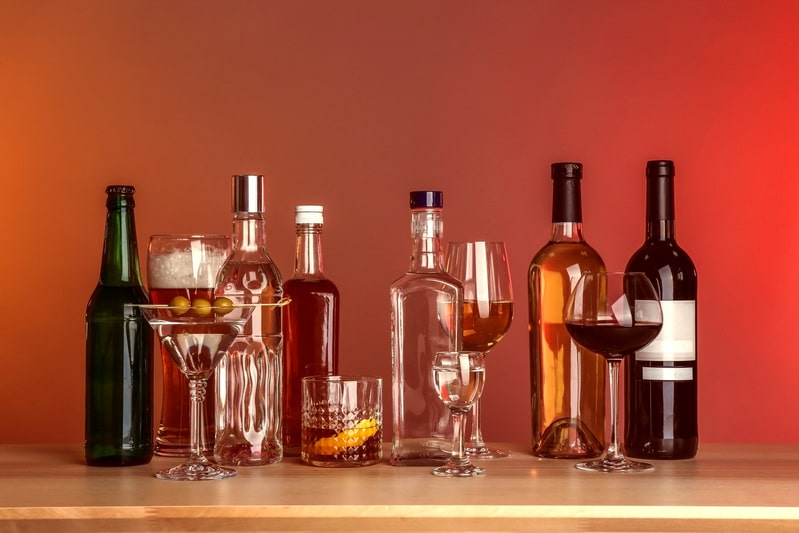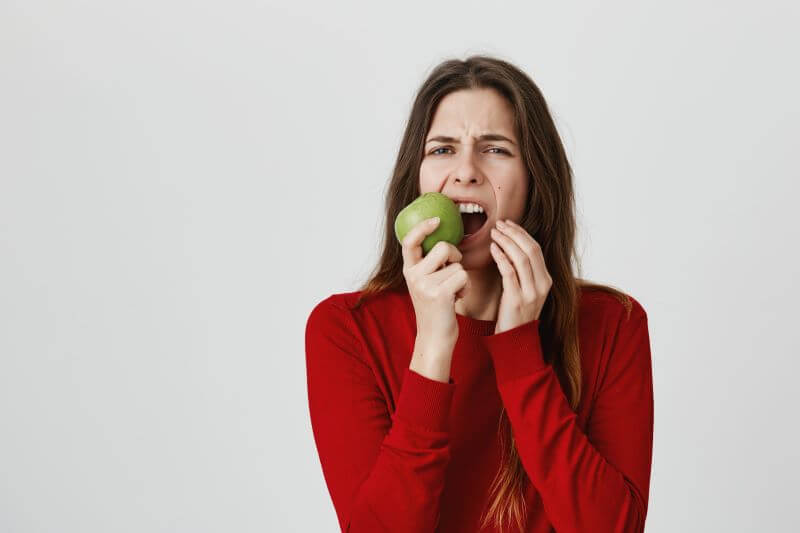Taking a medication might seem trivial; however, did you know that certain foods can affect its absorption, reduce its effectiveness, or conversely, amplify side effects? Grapefruit, coffee, dairy products, and licorice… The interactions between food and medications are often overlooked, yet they can significantly impact health. Here’s an overview of foods to avoid while on medication.
When undergoing a medication regimen, people often focus on timings and side effects, neglecting a crucial factor: nutrition.
Certain foods can interfere with medications, altering their absorption, efficacy, or side effects. Such interactions can lead to consequences ranging from reduced treatment efficacy to potentially serious adverse effects.
When Food Disrupts Medication Absorption
Grapefruit: A Risky Fruit for Your Medications
Grapefruit is one of the most well-known food items for its drug interactions. It inhibits an enzyme in the liver and intestines (CYP3A4) that plays a critical role in breaking down many medications. This inhibition can lead to abnormally high levels of medication in the bloodstream, potentially causing significant side effects.
The interaction can elevate the concentration of certain drugs in the blood, increasing the risk of adverse effects such as heart problems, bleeding, or liver toxicity. It is estimated that grapefruit can interact with about 85 different medications.
Medications affected include:
- Some statins (cholesterol medications) like simvastatin and atorvastatin.
- Some antihypertensives such as felodipine.
- Some immunosuppressants like cyclosporine.
- Some anxiolytics and antidepressants.
In addition to its effect on the enzyme, grapefruit can also affect the intestinal absorption of certain medications. This means that even if the medication is absorbed, it may remain in the bloodstream longer or at higher concentrations, which alters its effectiveness and safety profile.
Therefore, it is advisable to avoid consuming grapefruit and its juice during treatment. It is important to note that other citrus fruits like Seville oranges, limes, and pomelos may have similar effects.
Dairy Products and Medications: A Combination to Avoid?
The calcium in dairy products can interfere with the absorption of certain medications by forming insoluble complexes. This interaction primarily affects some antibiotics (fluoroquinolones, tetracyclines) and osteoporosis medications (bisphosphonates).
To minimize these interactions, it is advised to space out medication intake and dairy consumption by at least two hours.
Coffee, Tea, and Medications: A Combination to Reconsider
Tea and coffee contain tannins and caffeine, which can reduce the absorption of certain medications. Tannins bind to iron, decreasing its absorption, which can be problematic for individuals with anemia undergoing supplementation. Caffeine can exacerbate the effects of some stimulants, leading to side effects such as restlessness or insomnia.
It is best to wait at least an hour between taking medications and consuming tea or coffee.
Foods That Alter the Effects of Medications
Alcohol and Medications: An Explosive Mix
Alcohol can interact with medications, either enhancing or diminishing their effects. For starters, it can amplify the sedative effects of certain drugs such as anxiolytics, antidepressants, or opioid analgesics, leading to excessive drowsiness, dizziness, or even respiratory depression.
Moreover, both alcohol and many medications are metabolized by the liver. Therefore, consuming both substances simultaneously can overload this organ and alter how the body processes medications. This can also increase the risk of liver toxicity, particularly with drugs like acetaminophen.
Additionally, alcohol can interfere with blood sugar control in diabetic patients, raising the risk of hypoglycemia.
Certain combinations, such as with metronidazole or disulfiram, can lead to unpleasant reactions, including nausea, vomiting, and headaches. It is advisable to avoid alcohol during medication treatment. If abstaining is not possible, discuss the risks with your doctor or pharmacist.
Licorice and Hypertension: A Dangerous Association
Licorice contains a substance, glycyrrhizin, that can cause sodium and water retention, leading to increased blood pressure and electrolyte imbalance.
The medications affected include:
- Antihypertensives
- Corticosteroids
- Diuretics
It is recommended to avoid licorice in all forms (candies, teas, extracts) while undergoing hypertension treatment.
St. John’s Wort: The Plant That Nullifies Certain Treatments
St. John’s Wort, known for its natural antidepressant properties, stimulates liver enzymatic activity, hastening the breakdown of many medications and reducing their effectiveness.
This interaction particularly affects:
- Oral contraceptives
- Anticoagulants
- Certain cancer treatments.
It’s crucial to consult a healthcare professional before using St. John’s Wort alongside medication.
How Food Can Worsen Medication Side Effects
Too Much Vitamin K? Beware of Anticoagulants!
Foods high in vitamin K, such as spinach, kale, and broccoli, play a role in blood coagulation. Excessive consumption can reduce the efficacy of anticoagulants like warfarin, increasing the risk of thrombosis.
It’s not about eliminating these foods, but rather maintaining consistent intake levels to avoid fluctuations in treatment effectiveness.
Excess Salt and Corticosteroids: Watch Out for Water Retention
Corticosteroids promote water and sodium retention, which can lead to elevated blood pressure and weight gain. A diet too high in salt exacerbates these effects.
To mitigate these risks, it is advisable to reduce salt intake and avoid heavily processed foods, which are often high in sodium.
Acidity and Anti-Inflammatories: A Duo That Weakens the Stomach
Acidic foods, such as citrus fruits, tomatoes, or vinegar, can exacerbate gastric irritations caused by non-steroidal anti-inflammatory drugs (NSAIDs) like ibuprofen or aspirin.
It is recommended to take these medications during meals and limit acidic food consumption to lessen the risk of gastrointestinal inflammation.
Individual reactions to medications and foods can vary greatly based on metabolism and health status. Diet can significantly influence medication efficacy, either by altering their absorption or disturbing their action. To avoid undesirable interactions, it is essential to be informed and adhere to specific dietary precautions. In cases of doubt, consulting a healthcare professional is the best course of action to ensure optimal and safe treatment.
IMPORTANT TO NOTE
The effect of grapefruit on medications can last up to three days after consumption. Even small amounts, like a glass of juice, can trigger an interaction. Therefore, it is crucial to remain vigilant not only on the day of medication intake but also in the preceding days.







